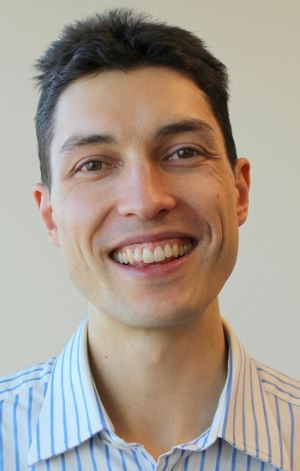Welcome to our first event for 2022, and our first in-person event for a long while. With the upcoming federal election looming, we are delighted to have Dr Damjan Vukcevic (University of Melbourne) and Prof. Philip Stark (UC Berkeley) talk to us about a very timely topic.
This event is co-hosted with the School of Mathematics and Statistics at the University of Melbourne.
Elections…Trust?...Verify!
How can we trust an election outcome if we cannot fully scrutinise the count?
A statistical election audit can provide such assurance. This involves examining a sample of the ballot papers to test the correctness of the outcome statistically. Methods to do this have been developed, and deployed, for many types of elections. Most of the action has been in the USA, where ‘risk-limiting audits’, pioneered by Prof. Stark, are now the gold-standard and are being increasingly adopted. While such audits are not yet conducted in Australia, the case for them is increasingly compelling. Legislation recently passed will require an analysis similar to an audit at the upcoming Senate election.
A major hurdle in Australia is that our election systems are very complex. Senate elections, in particular, are beyond the capabilities of existing auditing methods. We are currently tackling this challenge as part of a recent grant from the Australian Research Council.
In our talk, we will introduce you to the basic statistical methods used for auditing elections, and explain why this is so hard for Australian elections. We'll provide some historical context for why auditing is important, and some of the practical challenges in running a real audit. Finally, we'll give you a glimpse of the latest progress in methods for tackling Australian elections.
About the speakers

Damjan Vukcevic is a Senior Lecturer in Statistical Genomics at the University of Melbourne. He has contributed extensively to human genomics research, beginning with his DPhil studies at the University of Oxford and continuing to his current role as a group leader at Melbourne Integrative Genomics. Damjan has worked both in academia and industry. His recent projects span many fields beyond genomics, including ecology, respiratory medicine, astrophysics and, most recently, election integrity. He has provided expert advice to the insurance sector and policy submissions to Federal Parliament. Damjan is a long-standing contributor to the statistics community in Australia and the SSA in particular, about to conclude his 4-year term as President/Vice-President of SSA Vic.
 Philip B. Stark is a Distinguished Professor of Statistics at the University of California, Berkeley. He is the originator of risk-limiting audits, a rigorous method that ensures that tabulation errors did not change the reported election outcome—or (with pre-specified probability) corrects the outcome if it is incorrect. Prof. Stark serves on the Board of Advisors of the U.S. Election Assistance Commission and has consulted for the Secretaries of State of California, Colorado, and New Hampshire. He has testified to state legislatures and as an expert witness in state and federal cases involving election integrity. His research also traverses many other fields, including applications to astrophysics, cosmology, ecology, health, nutrition, business and commerce.
Philip B. Stark is a Distinguished Professor of Statistics at the University of California, Berkeley. He is the originator of risk-limiting audits, a rigorous method that ensures that tabulation errors did not change the reported election outcome—or (with pre-specified probability) corrects the outcome if it is incorrect. Prof. Stark serves on the Board of Advisors of the U.S. Election Assistance Commission and has consulted for the Secretaries of State of California, Colorado, and New Hampshire. He has testified to state legislatures and as an expert witness in state and federal cases involving election integrity. His research also traverses many other fields, including applications to astrophysics, cosmology, ecology, health, nutrition, business and commerce.
Other information
At the start of this event, we will also be announcing the winner of the Di Cook Award
Please note that if you are attending in-person, we require you to check in and show proof of double vaccination of COVID-19 vaccine at the door. People attending in-person must follow current COVID-safe guidelines. If you are feeling even mildly unwell or have symptoms of COVID-19 do not attend in-person.
